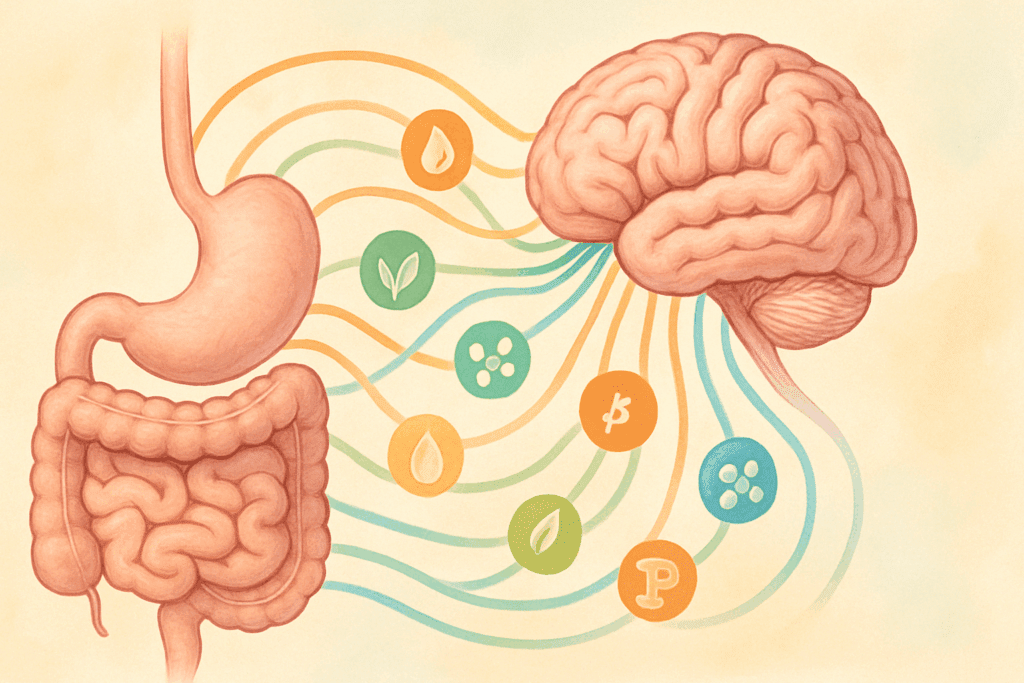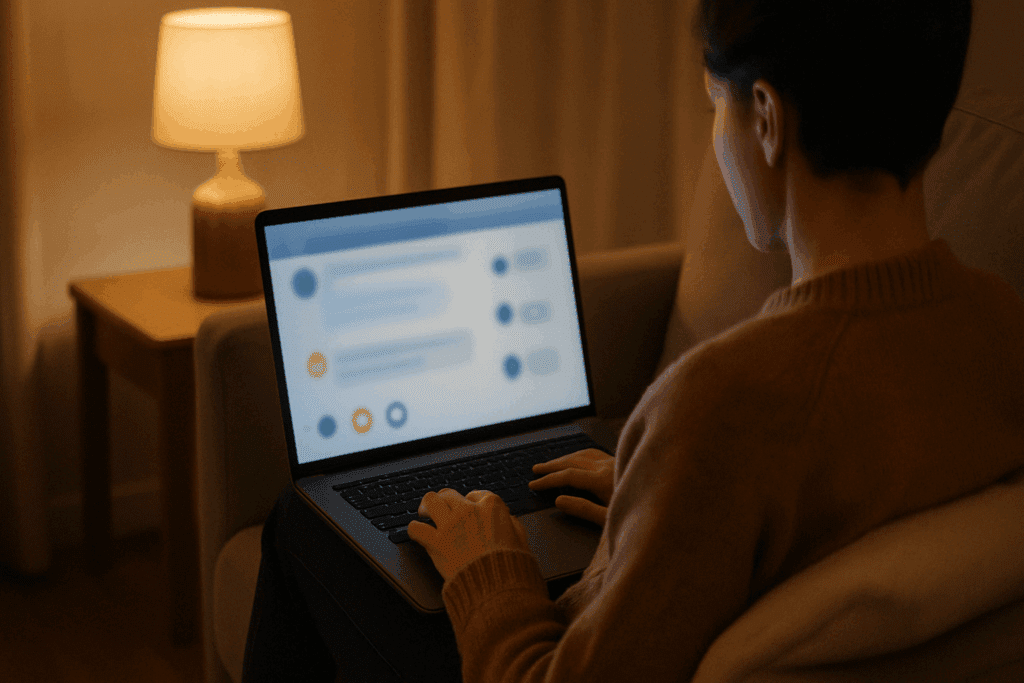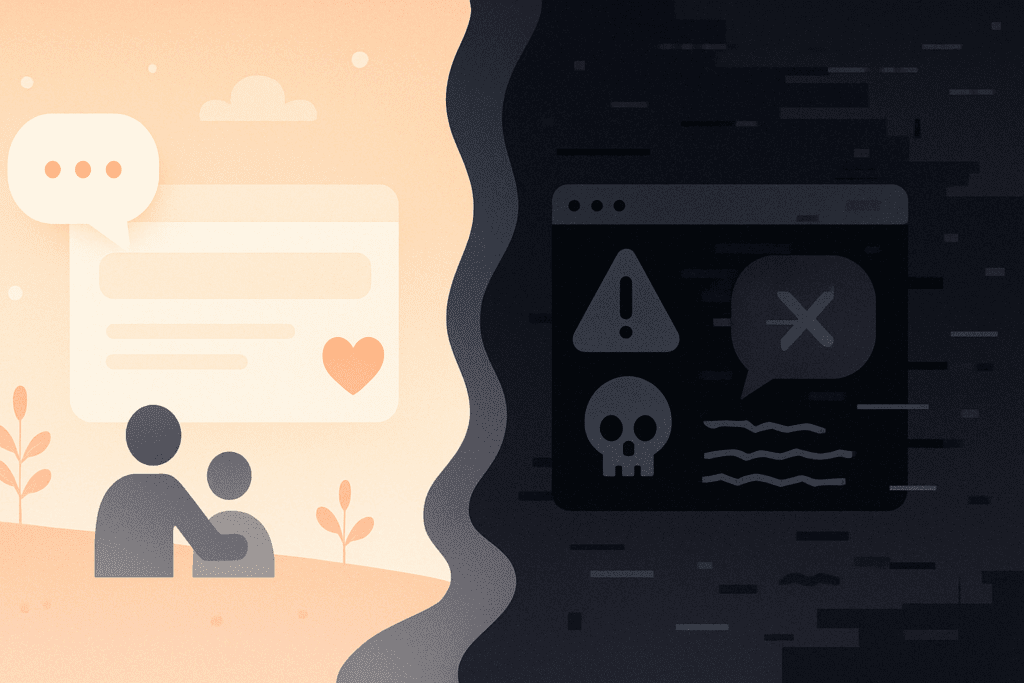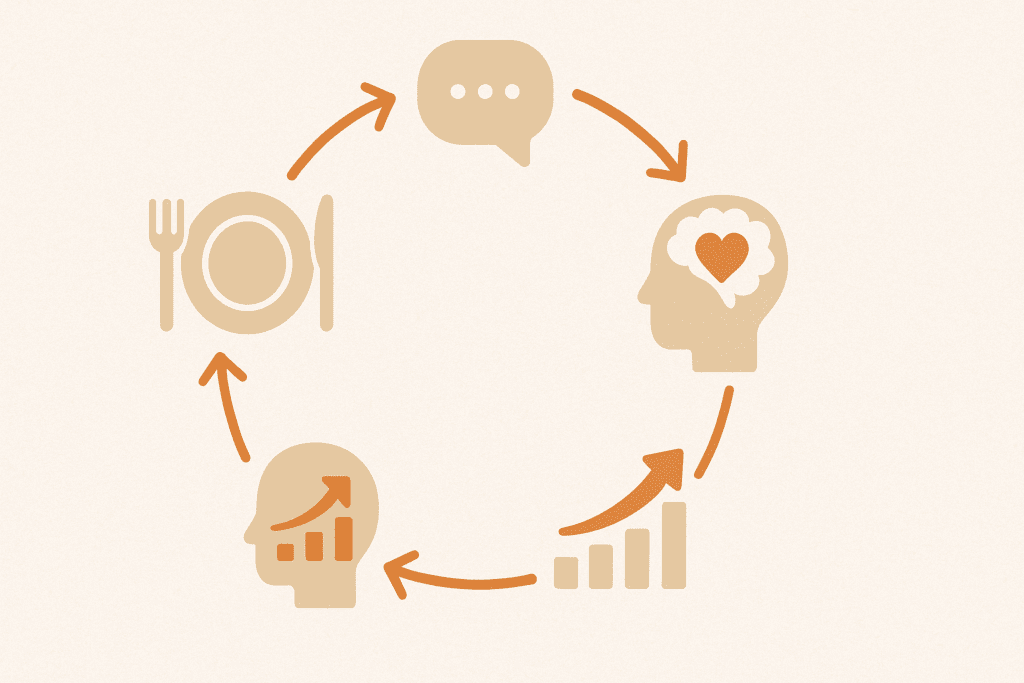Understanding the Role of Nutrition in Eating Disorder Recovery
The foundation of recovery from an eating disorder involves far more than simply eating more or less. Nutrition plays a crucial role in rebuilding physical health, stabilizing mood, and restoring a positive relationship with food. Individuals struggling with disordered eating often experience nutrient deficiencies that contribute to cognitive impairments, emotional instability, and even digestive dysfunction. As the body and brain require adequate fuel to heal, nutrition becomes both the bridge and the balm in the recovery journey.
You may also like: How to Stop Emotional Eating and Regain Control: Mindful Nutrition Strategies That Support a Healthier Lifestyle
For those in recovery, reintroducing balanced eating habits can feel overwhelming, especially when food has been a source of fear or control. A well-rounded nutritional approach prioritizes variety, moderation, and inclusion—not restriction. It emphasizes regular meals, diverse food groups, and personalized strategies that promote both physiological nourishment and psychological safety. While medical professionals often lead the nutritional rehabilitation process, peer-based tools like an eating disorder support forum can offer critical reinforcement.
An eating disorder forum provides a community-based platform where members can share meal strategies, talk about food fears, and receive real-time emotional backing. In these spaces, people often feel less isolated in their struggles and more motivated to pursue balanced nutrition. Instead of rigid food rules, discussions tend to focus on self-compassion and the importance of small, sustainable steps. This shared dialogue about food and recovery becomes a vital lifeline, especially during moments of uncertainty.
Importantly, nutritional recovery also calls for recognizing and correcting misinformation. Many individuals in eating disorder recovery carry deeply rooted myths about food, weight, and metabolism. Through credible resources—often surfaced and debated in an ed support forum—individuals can challenge these distortions and replace them with science-based insights. This fosters a more informed and empowered approach to eating.
Ultimately, nutrition is not just a physical requirement; it is a symbol of trust and self-care. As individuals gradually rebuild their relationship with food, they begin to reclaim their sense of agency and vitality. With the help of a supportive community, such as a dedicated eating disorder support forum, the process of nutritional healing becomes less daunting and more attainable.

How Online Forums Foster Emotional and Practical ED Support
In the digital age, the path to healing often includes logging into a space where people truly understand. Online communities have revolutionized the way support is accessed for mental health concerns, especially eating disorders. These platforms offer immediate, non-judgmental interaction that can be deeply reassuring for individuals navigating the complexities of recovery. A thoughtfully moderated ed support forum can serve as a critical supplement to professional care by filling the emotional gaps between therapy sessions or nutrition appointments.
One of the most powerful elements of an eating disorder forum is the ability to be vulnerable without fear. Users often share their struggles, fears, and triumphs with remarkable honesty. This raw expression, in turn, invites empathy and validation from others who relate on a personal level. Whether someone is confronting a relapse or celebrating their first meal out in months, the communal response reinforces that no step is too small, and no setback is too shameful.
Beyond emotional support, these forums are rich with practical wisdom. Threads often feature user-curated suggestions on how to cope with mealtimes, manage triggering environments, or navigate family dynamics. Such advice, offered peer-to-peer, often resonates more authentically because it reflects lived experience. Members frequently share resources such as meal plans, grocery tips, or mindful eating exercises that have worked for them in real life.
The structure of an ed support forum allows for asynchronous engagement, which is particularly beneficial for those who need flexibility or prefer writing to speaking. This format accommodates different learning and communication styles, making the space more inclusive. Users can browse conversations, participate actively, or simply observe until they feel ready to contribute. This permission to interact at one’s own pace often enhances the therapeutic value of the platform.
Moreover, by participating in these communities, individuals often begin to internalize more compassionate narratives around food, body image, and self-worth. A forum is not a substitute for clinical treatment, but it functions as a crucial adjunct—one that supports the often fragile steps toward sustained recovery.

Mindful Eating as a Bridge to Body Acceptance and Wellness
At its core, mindful eating is about reconnecting with the body’s innate hunger and fullness cues. This practice encourages a non-judgmental awareness of the eating experience, from the texture of food to the emotions it evokes. For individuals in eating disorder recovery, mindful eating can offer a profound shift away from shame and rigidity toward curiosity and kindness. Rather than counting calories or categorizing foods as “good” or “bad,” this approach invites a deeper engagement with the present moment.
In the context of an eating disorder support forum, mindful eating often emerges as a recurring theme. Users discuss how slowing down, breathing, and appreciating food can reduce anxiety and foster pleasure. These shared reflections help demystify the concept, making it more accessible to those new to the practice. For example, a member might describe how eating a single grape mindfully helped them overcome the fear of sugar, sparking a wave of supportive and similarly vulnerable posts.
The practice of mindful eating also aligns with emerging research on interoceptive awareness—the ability to perceive internal bodily signals. Studies suggest that individuals with eating disorders often struggle with this sense, making it difficult to recognize hunger or satiety. Mindful eating serves as a retraining tool, gently guiding individuals back to an embodied experience of nourishment. As the skill strengthens, it can reduce binge episodes, restrictiveness, and emotional eating.
Forums that center on mindful eating often emphasize the importance of forgiveness and patience. Setbacks are reframed not as failures, but as learning opportunities. This shift in perspective helps to build resilience and promotes consistency without the punitive overtones that characterize many diet cultures. When forum participants share these breakthroughs, they create ripple effects that encourage others to adopt similar attitudes.
Ultimately, mindful eating is not just a nutritional tool—it is a philosophy that supports overall well-being. By tuning into the body with compassion, individuals can begin to rebuild trust in themselves. With ongoing encouragement from a supportive ed support forum, the path to recovery becomes not only feasible but also deeply fulfilling.

Distinguishing Healthy Forums from Harmful Online Spaces
While online communities can be lifelines, not all forums are created equal. A clear distinction must be made between supportive, recovery-focused spaces and those that promote disordered behaviors under the guise of support. Pro eating disorder forums, for instance, often masquerade as communities offering help but instead normalize or encourage dangerous habits. The line between support and sabotage can be subtle, but recognizing it is essential for anyone seeking genuine healing.
A healthy eating disorder forum emphasizes recovery, safety, and evidence-based practices. These forums are typically moderated by trained volunteers or professionals who ensure that harmful content is removed quickly. They enforce guidelines against weight comparisons, caloric tracking, or competitive behaviors. Instead, conversations are oriented around growth, setbacks, and the process of healing, creating a safe environment for all participants.
In contrast, a pro eating disorder forum may glamorize emaciation, share extreme weight loss tactics, or celebrate relapse. These spaces can be particularly dangerous for vulnerable individuals who are ambivalent about recovery. While they may appear as a form of community, their actual impact often deepens the disorder, isolates users from real help, and fuels self-destructive thinking. It is critical that users understand these risks and seek out spaces that reinforce recovery.
Fortunately, there are red flags that can help identify problematic forums. A lack of moderation, encouragement of secrecy, and an absence of recovery-oriented language are key indicators. On the flip side, authentic ed support forums are transparent about their values, promote mental health resources, and consistently reinforce the importance of self-care.
Navigating online communities requires discernment and self-awareness. Users should feel empowered to question the tone and direction of conversations and to leave spaces that do not align with their recovery goals. In choosing supportive, trustworthy forums, individuals maximize their chances of sustained healing and reduce exposure to potentially harmful content.

Nutrition and Community: A Powerful Combination for Sustainable Change
Healing from an eating disorder is rarely a solo journey. Recovery is made more sustainable when it is reinforced by both internal motivation and external support. Nutrition provides the biological fuel for recovery, but community offers the emotional scaffolding that holds the process together. When these two elements intersect, as they often do in an eating disorder support forum, the result is a synergy that propels lasting transformation.
Forums offer more than advice—they offer connection. They remind users that others are walking similar paths, that setbacks are normal, and that progress is not linear. This connection, layered with nutritional guidance, creates a multidimensional recovery environment that nurtures both body and spirit. When someone posts about struggling to meet their caloric needs for the day and receives encouragement and practical tips, they are more likely to try again tomorrow.
The visibility of success stories also plays a critical role. In a thriving ed support forum, users frequently share milestones like reaching a healthy BMI, enjoying food again, or completing a fear-food challenge. These narratives act as living proof that recovery is possible and provide inspiration for those still in the trenches. They also serve to normalize the ups and downs inherent in healing, reducing feelings of shame or isolation.
Moreover, forums can help users develop nutritional literacy. Through shared articles, personal anecdotes, and expert contributions, members gain a clearer understanding of how food affects mood, cognition, and energy. This knowledge empowers individuals to make choices rooted in self-care rather than fear. With a clearer picture of how their bodies function and what they need, they are better equipped to move forward confidently.
Ultimately, the marriage of nutritional guidance and community support creates a feedback loop of healing. As individuals nourish themselves physically, they gain the clarity and strength to engage emotionally. And as they feel more connected and supported, they are more inclined to honor their nutritional needs. This cycle, when nurtured in a safe and inclusive eating disorder forum, becomes the heartbeat of sustainable recovery.

Frequently Asked Questions (FAQ) – Eating Disorder Recovery Through Nutrition and Community
What makes an eating disorder support forum a valuable addition to professional treatment plans?
An eating disorder support forum adds a unique layer of community-driven encouragement that complements clinical care. While therapists and dietitians provide structured guidance, forums offer continuous peer interaction that bridges the gap between appointments. This ongoing connection can help individuals process real-time challenges, such as post-meal anxiety or food-related social events. It also nurtures a sense of belonging and accountability, both of which are essential for long-term motivation. When used alongside therapy and nutrition counseling, an eating disorder forum becomes a powerful tool for holistic recovery.
How does participation in an ed support forum influence long-term recovery outcomes?
Engagement in an ed support forum has been shown to positively influence long-term outcomes by fostering emotional resilience and social reinforcement. Individuals who actively participate often develop a deeper sense of responsibility toward their own healing and toward supporting others. The act of encouraging others in recovery can even serve as a mirror, reflecting back personal growth. This dynamic strengthens commitment and reduces the risk of relapse. Additionally, the consistent exchange of strategies, reflections, and setbacks helps normalize the highs and lows of recovery, making the process feel less isolating and more manageable over time.
Are there risks involved with joining an online eating disorder forum?
Yes, not all forums are created equal. While many eating disorder support forums are grounded in recovery-focused dialogue, others—especially pro eating disorder forums—can be harmful. A pro eating disorder forum may reinforce unhealthy behaviors, glorify thinness, or create a sense of competition among users. Such environments can undermine progress, particularly for individuals in early recovery. It’s critical to evaluate a forum’s moderation policies, community values, and user interactions to ensure the space promotes healing rather than hindering it.
Can ed support forums help individuals who feel ashamed or isolated in their recovery journey?
Absolutely. One of the most profound benefits of an ed support forum is its capacity to dissolve isolation. Many individuals struggling with eating disorders experience intense shame, believing their thoughts or behaviors are unique. Forums counteract this by showcasing a diverse range of shared experiences that normalize struggle without minimizing its seriousness. Over time, this reduces the burden of secrecy and encourages users to speak openly. The anonymity of online platforms also empowers individuals to be honest in ways they might not be during face-to-face interactions, making support more accessible and authentic.
How can I recognize a safe and supportive eating disorder forum versus a pro eating disorder forum?
A safe eating disorder forum will clearly prioritize recovery and mental well-being. Indicators of a trustworthy forum include the presence of active moderation, clear community guidelines against triggering content, and an emphasis on evidence-based strategies. In contrast, a pro eating disorder forum may lack moderation, contain weight-loss tips, or frame disordered behaviors as aspirational. Trusted ed support forums typically share mental health resources, encourage seeking professional help, and avoid comparisons around weight or symptoms. Taking the time to read community rules and initial posts can help determine if the space aligns with your recovery goals.
What role does shared storytelling play in the effectiveness of an ed support forum?
Shared storytelling transforms an ed support forum into a space of empathy and empowerment. Personal narratives allow members to express complex emotions that might be hard to articulate otherwise. These stories also offer practical lessons, such as how someone managed holiday meals or responded to body image triggers. For those newer to recovery, seeing others further along in their journey provides both hope and direction. Beyond inspiration, storytelling humanizes recovery by showing that setbacks are part of the process and that growth is possible, even in difficult moments.
How does nutrition advice shared in forums compare to that from licensed professionals?
While many users share helpful insights, it’s important to remember that nutrition guidance from an eating disorder forum is anecdotal, not clinical. Some advice may be grounded in personal success, but what works for one person might not work for another. A dietitian will tailor recommendations based on individual needs, lab work, and psychological readiness. However, forum-based suggestions can serve as conversation starters or emotional encouragement to try new approaches under professional supervision. In that way, peer advice doesn’t replace expert guidance but rather complements it when approached with discernment.
Is it possible to find community in a digital space without compromising privacy or safety?
Yes, many ed support forums are designed with user privacy in mind. Features such as anonymous usernames, encrypted messaging, and private discussion threads create an environment where users can share openly without revealing personal details. It’s wise to avoid sharing identifiable information like location or real names, and to familiarize yourself with the platform’s privacy policy. When managed responsibly, an eating disorder support forum can offer a safe harbor for connection, reflection, and learning. This type of digital community becomes particularly valuable for individuals who may not have access to in-person groups or who prefer the flexibility of online engagement.
Can engaging in an ed support forum be helpful even for those who have completed formal treatment?
Yes, even individuals who have completed residential or outpatient treatment can benefit from continued participation in an eating disorder support forum. Recovery is a long-term commitment, and staying connected to supportive peers can help reinforce healthy habits. These forums often evolve into maintenance spaces, where users discuss navigating everyday challenges like work stress, dating, or parenting while maintaining recovery. Continued engagement provides an outlet for reflection, relapse prevention, and giving back to the community. It also helps former patients stay current with evolving recovery tools and insights.
What should I do if I find myself triggered by a post in an eating disorder forum?
It’s important to prioritize your mental well-being and take proactive steps when you encounter triggering content. Most ed support forums have reporting mechanisms to flag posts that may be harmful or inappropriate. You can also use built-in tools like content filters or mute functions to manage your experience. If a post evokes a strong emotional reaction, consider stepping away from the platform temporarily and grounding yourself through healthy coping strategies. Talking to a therapist about what you read can also offer clarity and support. Remember, even in recovery spaces, your boundaries deserve respect—and cultivating a safe digital environment is part of that process.

Final Thoughts on Recovery: Reclaiming Wellness Through Food and Community
Recovering from an eating disorder is a deeply personal and often nonlinear journey. Yet, it is a path illuminated by two powerful forces: the nourishment of the body and the nourishment of the soul. Nutrition is not just about calories or macros—it is a form of medicine, a method of reconnection, and a medium through which self-trust is rebuilt. When paired with the empathy and shared wisdom found in an ed support forum, this process becomes not only manageable but meaningful.
While clinical care remains essential, the role of community cannot be overstated. A safe, supportive eating disorder forum provides a space where individuals can witness and be witnessed, share without shame, and learn without judgment. These digital villages function as catalysts for self-awareness, acceptance, and ultimately, transformation. Whether someone is just beginning their recovery or seeking to sustain it long-term, these forums offer a lifeline.
It’s crucial, however, to remain vigilant against harmful spaces such as pro eating disorder forums, which can derail progress and endanger health. Choosing a forum rooted in recovery, empathy, and scientific integrity ensures that users are surrounded by those who truly want to heal. In these environments, the integration of mindful eating and holistic lifestyle changes becomes a shared practice, not a solitary struggle.
The journey toward wellness involves more than simply changing eating habits—it involves redefining one’s relationship with the self. Through community and nutritional awareness, individuals can discover that food is not the enemy but an ally in the quest for vitality. With the support of a trustworthy eating disorder support forum, recovery becomes not just a goal, but a lived reality—one meal, one moment, and one mindful decision at a time.
Was this article helpful? Don’t let it stop with you. Share it right now with someone who needs to see it—whether it’s a friend, a colleague, or your whole network. And if staying ahead on this topic matters to you, subscribe to this publication for the most up-to-date information. You’ll get the latest insights delivered straight to you—no searching, no missing out.
Further Reading:
Navigating Holidays: A Guide For Individuals Recovering From Eating Disorders
The Impact of Anorexia Nervosa and the Basis for Non-Pharmacological Interventions

